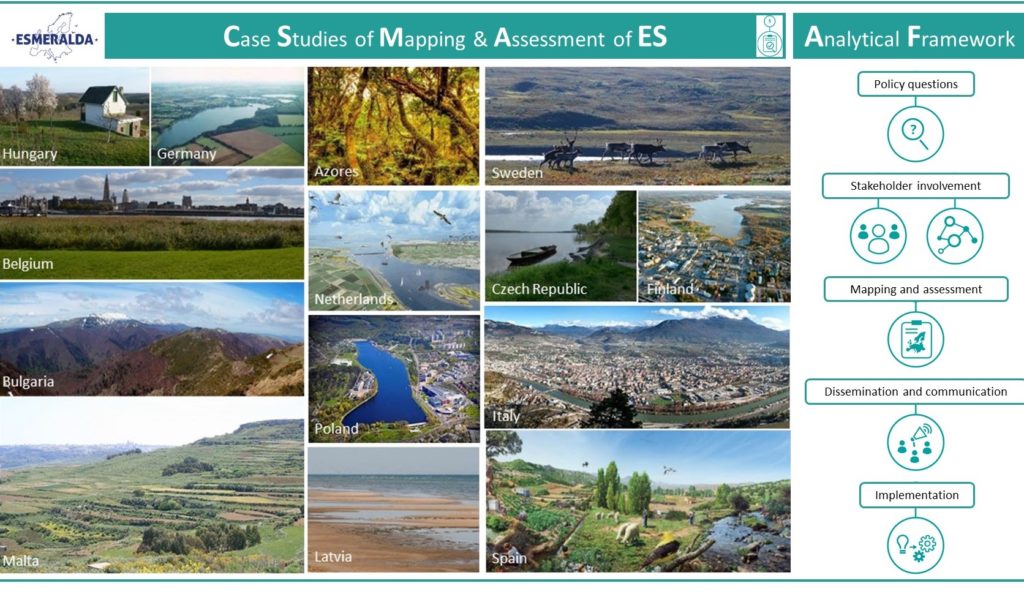Lessons learned from a comparative analysis of European case studies
This paper analyses and compares a set of case studies on ecosystem services (ES) mapping and assessment with the purpose of formulating lessons learned and recommendations. Fourteen case studies were selected during the EU Horizon 2020 “Coordination and Support Action” ESMERALDA to represent different policy- and decision-making processes throughout the European Union, across a wide range of themes, biomes and scales. The analysis is based on a framework that addresses the key steps of an ES mapping and assessment process, namely policy questions, stakeholder identification and involvement, application of mapping and assessment methods, dissemination and communication and implementation. The analysis revealed that most case studies were policy-orientated or gave explicit suggestions for policy implementation in different contexts, including urban, rural and natural areas. Amongst the findings, the importance of starting stakeholder engagement early in the process was confirmed in order to generate interest and confidence in the project and to increase their willingness to cooperate. Concerning mapping and assessment methods, it was found that the integration of methods and results is essential for providing a comprehensive overview from different perspectives (e.g. social, economic). Finally, lessons learned for effective implementation of ES mapping and assessment results are presented and discussed.
Find the full article here.

